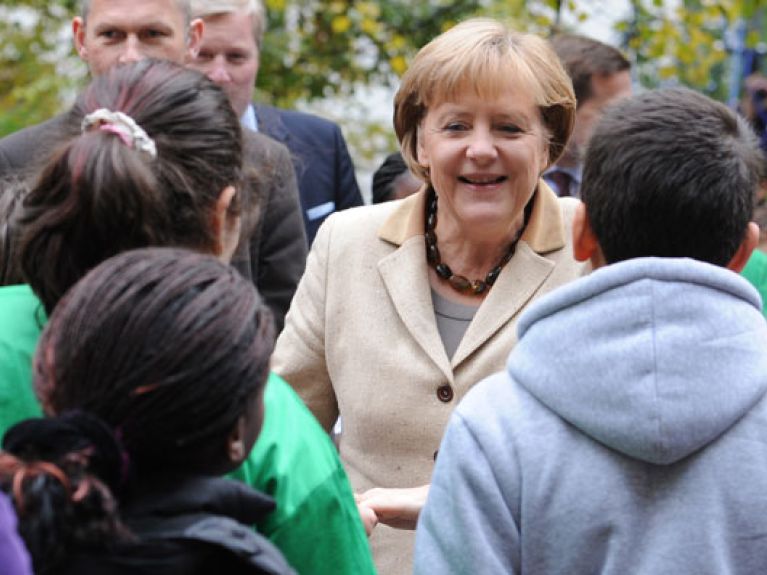Learning with the Chancellor
On EU Project Day, school students will be discussing Europe with German Chancellor Angela Merkel, government ministers and members of parliament.

Angela Merkel is in up-beat mood when she talks about subjects on EU Project Day. The German chancellor visits selected schools and answers questions raised by pupils who are clearly interested in very much the same sort of issues as the politicians themselves: how secure is the euro? What would happen if a country were to leave the eurozone? Who actually came up with the idea of the bailout package? How much more is it all going to cost? The young people are concerned not only about issues of crisis management, however, but also about such searching questions as: which other countries wish to join the EU? What does the single labour market mean for people just beginning their working lives? What initiatives exist to promote peaceful coexistence among young people in Europe?
Because the chancellor obviously cannot answer questions everywhere, she is supported all over Germany by her cabinet colleagues, members of the European and German state parliaments and the heads of the state governments. They likewise go into schools to take part in discussions and see the Europe-related projects that the students are pursuing.
EU Project Day is already being held for the sixth time this year. It was initiated by the German chancellor when Germany held the EU Presidency in 2007, since which time it has taken place every May to mark Europe Week. Officially, “It is intended to arouse pupils’ interest in the European project, deepen their understanding of the way the European Union works, and inspire them to discuss contemporary issues”. What is more, the topic is firmly anchored in the school curriculum. The Federal Agency for Civic Education and the European Union’s Internet portal also offer information and teaching materials relating to Europe.
EU Project Day on 6 May, Europe Week from 4 to 12 May 2013
www.bpb.de
europa.eu/teachers-corner/index_de.htm.
www.bundesregierung.de/Webs/Breg/DE/Bundesregierung/Bundespresseamt/bundespresseamt.html.
© www.deutschland.de

